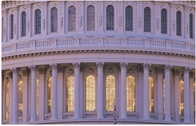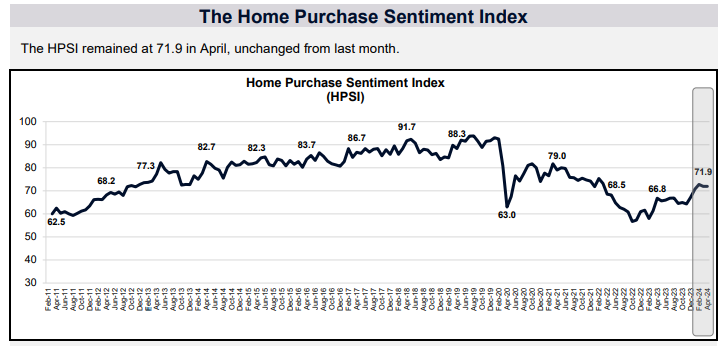Advertisement
Industry Weighs in on Debt Ceiling at Senate Banking Hearing

In an open session entitled “Impact of a Default on Financial Stability and Economic Growth,” Sens. Tim Johnson and Mike Crapo hosted a panel of experts in the field including Gary Thomas, president of the National Association of Realtors (NAR), as well as the president and CEO of the American Bankers Association (ABA), Frank Keating to discuss the need to increase the debt ceiling and what policymakers can do to better allow the increase to occur.
“Ordinary Americans will bear the brunt of the damage if our leaders do not prevent the United States from defaulting on its debt for the first time in history. We are much closer to disaster this year than we were just over two years ago when the debt—ceiling standoff caused economic uncertainty to spike, consumer confidence to plummet and stock prices to spiral downward—all because of the perceived risk of the United States defaulting on its domestic and international debt obligations,” said Keating in his testimony. “The Bipartisan Policy Center (of which I am a board member) estimated the 2011 debt standoff cost taxpayers close to $20 billion as nervous investors demanded higher interest on U.S. Treasury bonds to account for the risk of government default. If our nation defaults on its nearly $17 trillion in debt, the harm is likely to be measured in hundreds of billions of dollars.”
The testimonies of Keating and Thomas both indicate that, should the U.S. default on their loans, the long-term effects of such a national black eye could be disastrous to the modern economy. Keating illustrates that even during our governmental shutdown, the prospect of defaulting on loans made to the United States government has sent a ripple of negativity through various markets, not the least of which, the mortgage industry as a whole.
“The inevitable increase in Treasury interest rates would cascade through the economy,” Keating said. “Directly impacting the lives of every American. Taxpayers will have to pay the higher government interest costs. Stocks would plummet, dealing a sharp blow to retirement funds.”
Keating’s testimony certainly reads like an economic doomsday scenario. The “ripple” effect is something we’ve already begun to see, with fixed mortgage rates shifting slightly over the past week or so. While this might not seem like a tremendously important figure, it’s important to note that small shifts in the economy across the board can result in a tidal wave of collapse as a whole.
Thomas, on the other hand, after highlighting the housing industry’s slow recovery since 2008, emphasized the need for recovery to remain constant and not be derailed by a government shutdown or an imposing debt ceiling.
“While these figures are promising, the housing market clearly remains far from healthy. Maintaining momentum in the housing market is particularly crucial right now. Sustaining the housing market rebound will increase economic and job growth, as it has in past U.S. economic recoveries,” Thomas said. “However, the momentum of the housing recovery will be in serious jeopardy if Congress is unable to move passed unnecessary political brinkmanship over raising the debt limit. A default, or even the perceived threat of a default, could result in a harsh and long - lasting recession, which may be even more severe than the previous economic downturn.”
While nobody wants an even longer, perhaps more difficult recession, both Keating and Thomas warn of such in plain and simple terms. The government has yet to work out their issues of resolving the shutdown. While hundreds of thousands of individuals remain out of work, unable to pay bills or generate income for their families, the Senate Gym remains open and endless debate on whether to plunge the country into the abyss of a terrible economy rages on.
About the author





